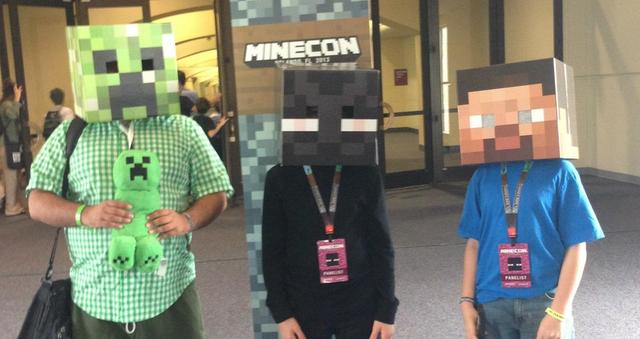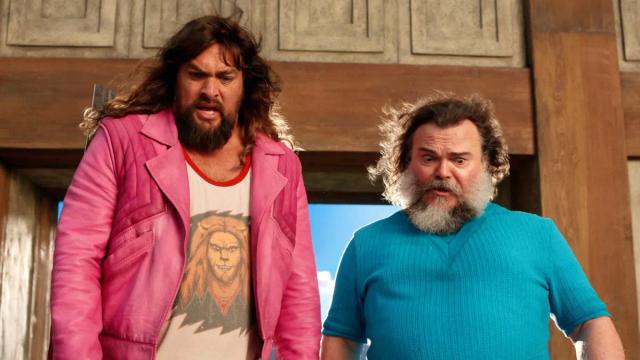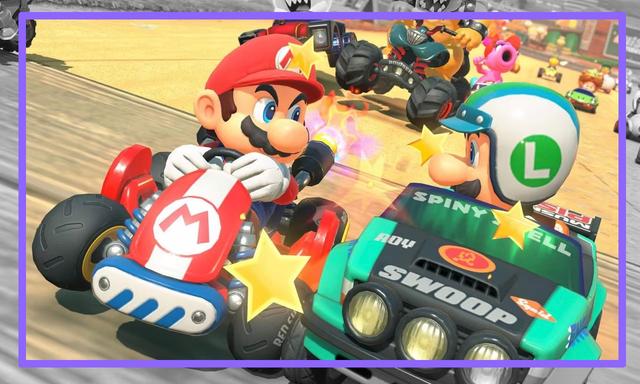If you click on a link and make a purchase we may receive a small commission. Read our editorial policy.
Marvel's X-Men Krakoan Age 2019 - 2024: An Obituary
Marvel's mutant Krakoa era: an ambitious, flawed experiment that built the X-Men back up

Popverse's top stories of the day
- Marvel's Kevin Feige talked to John Boyega about who he'd play in the MCU, but "there ain't no room for me," says the Star Wars star
- MEMBERS ONLY: Watch the Lord of the Rings movie reunion panel with Elijah Wood, Sean Astin, Dominic Monaghan, Billy Boyd, John Rhys-Davies, and Andy Serkis from Chicago's C2E2 2025
- Sorry, webheads: Tom Hardy says we weren't as close to that Spidey/Venom movie as was reported
This week sees a literal end of an era for Marvel’s X-Men comic book line, with the release of X-Men #35 — AKA, X-Men #700, by which it actually means Uncanny X-Men #700, because titles and numbering is hard and also somewhat confusing for any number of reasons… also known as the official end of the Krakoa era of the X-franchise.
Dawn of X

That era started back in 2019, with the release of House of X and Powers of X (pronounced 'House of X,' as in the letter, and 'Powers of 10,' to be clear) two interlinked miniseries that redefined the X-Men franchise in a substantial way, altering not just the future of the line, but its past, as well: incoming architect Jonathan Hickman created a framework for the franchise that substantially rewrote its past and created a future that spanned a millennium into the future, and included the end of humanity and mutantkind alike, while also building a status quo that remixed multiple X-Men tropes to startling new effect: mutants segregated themselves on a living island joyously, creating not only a new culture but officially a new nation — and in the process, face humanity a reason to consider mutants “hated and feared” more than ever, to lean on an old tagline for the series.
It was, to put it mildly, a bold new direction for what had once been Marvel’s biggest comic book property before falling into disrepair for political reasons. As became increasingly obvious across the subsequent years, it might have been a little too bold, in retrospect.
The House of X/Powers of X pairing lead to more than four years of multiple X-Men comic books, released in waves with overall branded titles: Dawn of X, Reign of X, Destiny of X, and Fall of X. In the 56-month span between the end of House of X and Powers of X and this week’s X-Men #35, more than 500 issues of X-Men comic books will have been released, across more than 80 different series. As with Hickman’s core ideas for the Krakoa-era relaunch, much of this material remixed existing ideas, tropes, and titles, reusing titles like ‘X-Men: Red,’ ‘Inferno,’ and ‘Exiles’ to new ends, all while advancing the set-up Hickman had created; even when Hickman himself moved on from the franchise midway through the Krakoa era, the line continued as if nothing had changed, thanks to the creative hive mind of writers including Gerry Duggan, Kieron Gillan, Al Ewing, Tini Howard, Si Spurrier, and editor Jordan White.
Fall of X

The end of the Krakoa era was first signaled in July 2023’s X-Men: Hellfire Gala 2023 #1, which officially launched the Fall of X era — although ironically, that itself was just the prelude to the two “official” closing chapters in the story: Fall of the House of X, and Rise of the Powers of X — with a third series, X-Men Forever, being added two months later to close off additional plot points not covered in either of those series or their many crossover issues. Think of it as intentional symmetry — two final chapters with names echoing the two initial chapters! — accidentally veering off-course because of circumstance, in what might be the most appropriate illustration of the Krakoa era as a whole.
Now that it’s all over, It’s fair to say that the Krakoa era at best was uneven, and increasingly messy in its second half. The final year, in which the many dangling plot threads are tied up, feels especially rushed and, at times, anti-climactic — but that might be because it was struggling with an arguably impossible task. Closing the door on the Krakoa era, and bringing the characters essentially back to basics ahead of the upcoming From the Ashes relaunch, requires not just a huge amount of effort from creators who have to functionally destroy a nation state, undo the X-Men’s ability to conquer death itself, and remove huge numbers of mutants from the playing field without leaving too much trauma in their wake, but also from readers whose credibility might be strained by following the return to the status quo of bygone times too closely.

The problem, ultimately, might lie at the feet of Jonathan Hickman and the original set up for the Krakoa era. There are a lot of big swings in both House of X and Powers of X that, arguably, were too big for the X-Men to continue to exist in the shared Marvel Universe. For example, their three miracle drugs that, amongst other things, apparently cured Alzheimers entirely — a Macguffin left in the background for the most part in the X-Men comics — was something that should have had impacts across all of Marvel’s other comics, but… apparently that’s just fallen to the wayside after the drugs were… poisoned somehow by the bad guys? The threat of an AI/human war is similarly, somehow, put to one side after explicitly being called out in Hickman’s original minis as being something inevitable, and the concept of the Marvel Universe being seemingly rebooted nine times without anyone noticing feels like an idea too big not to touch again. And yet…
(Hickman’s revisionist history for the X-Men, which involves Xavier, Moira, and Magneto collaborating in secret for a decade before Krakoa feels like something else awaiting a retcon of its own before too long, too.)
None of this is intended to damn either the start, or the end, of the Krakoa era of X-Men comics. It’s better to be too bold than display no ambition, after all, and there are more than enough fun touches to enjoy even when the overarching stories fall flat. (I may be one of only three people to enjoy that John Cale joke in X-Men Forever, but I truly did.) In the end, the Krakoa era of the X-Men as a comic book run feels that it matches the era in-universe, fittingly: well-intended, ambitious and, even if it didn’t last, something that leaves the X-Men better off as a result than they were beforehand.
X-Men Forever

Three brief, spoiler-y thoughts that didn't fit into the main piece but I didn't want to leave unattended:
- For all that the content of the Hickman/Krakoan era X-Men comics is very much remixed from X-Men history, the delivery system - the focus on political in-fighting, doing away with traditional superheroics, and the data pages - are straight out of Keith Giffen's cult "Five Years Later" run of DC's Legion of Super-Heroes; I'm always surprised more was not made of that connection.
- That Moira ended up essentially a bystander at the end of the Krakoa era is surprising, to the point where I wonder whether there was originally something else in mind entirely for Hickman; I know he depowered her in Inferno, but Storm was also depowered using the same weapon and got her powers back - that there wasn't a reboot by the end of the story, especially given that Moira is explicitly told she would live 11 lives - which is to say, one past her current life - if she made the right choices in a scene that appears in both House of X/Powersof X and Inferno, feels like plans changed at some point. Moira is Chekhov's gun, but unused.
- For all that Fall of the House of X especially feels rushed to the point of absurdity - the X-Men essentially rise up and defeat Orchis, which had outwitted them entirely before this point, off-panel - X-Men #35 is a lovely send-off to the era as a whole, and as close to a happy ending as the franchise will ever receive. It's a smart move to end in that way; it's so well done that it papers over many of the cracks that had immediately preceded it, at least in terms of the readers' sentiment.
X-Men #35 is available June 5.
Keep up to date on Popverse's Marvel coverage, with these highlights:
- The MCU needs Anya Taylor-Joy's Magik in it (and not just for the X-Men connection)
- How Disney+'s What If...? is the moonshot for the next 50 years of Marvel Studios & the MCU
- Marvel Studios has accidentally created a new Phase that predates Phases 1 - 6: the MCU Phase Zero
- Overgrown children of the atom: Marvel's X-Men can't evolve past their '90s commercial peak
- The biggest outstanding questions of the Marvel Studios' movies & TV shows
- Donald Trump is the landlord for Marvel's House of Ideas
- Marvel Studios swapping out Doctor Doom for Kang offers the chance to jettison the Multiverse Saga
- What Marvel Studios boss Kevin Feige is saying (and not saying) about the MCU X-Men franchise says a lot about the future of the Mutant Saga
- If Marvel is going to bring Loki back for Secret Wars, it's time to give him an upgrade
- In 2021, Sony's boss said people won't miss Spider-Man in its Spider-adjacent movie. Turns out, they do.
Follow Popverse for upcoming event coverage and news
Find out how we conduct our review by reading our review policy
Let Popverse be your tour guide through the wilderness of pop culture
Sign in and let us help you find your new favorite thing.
















Comments
Want to join the discussion? Please activate your account first.
Visit Reedpop ID if you need to resend the confirmation email.